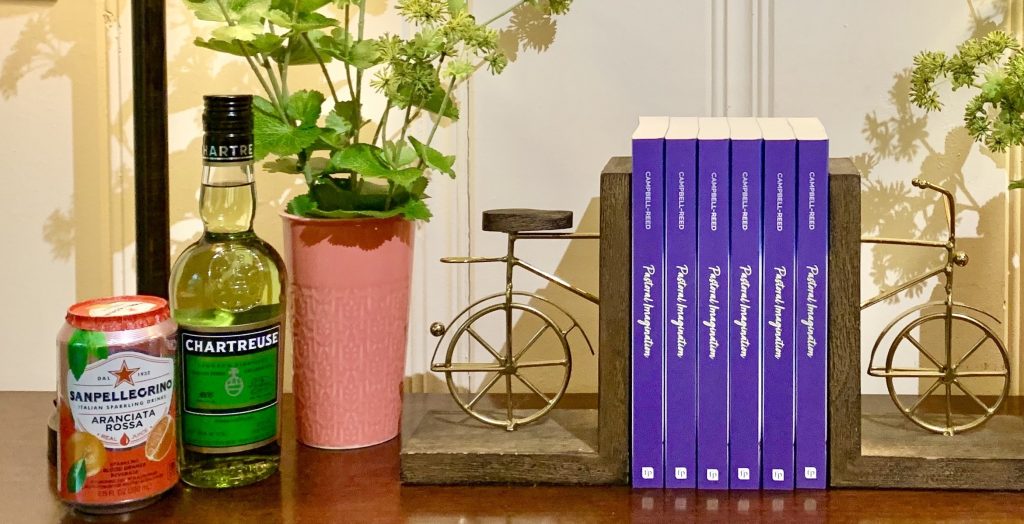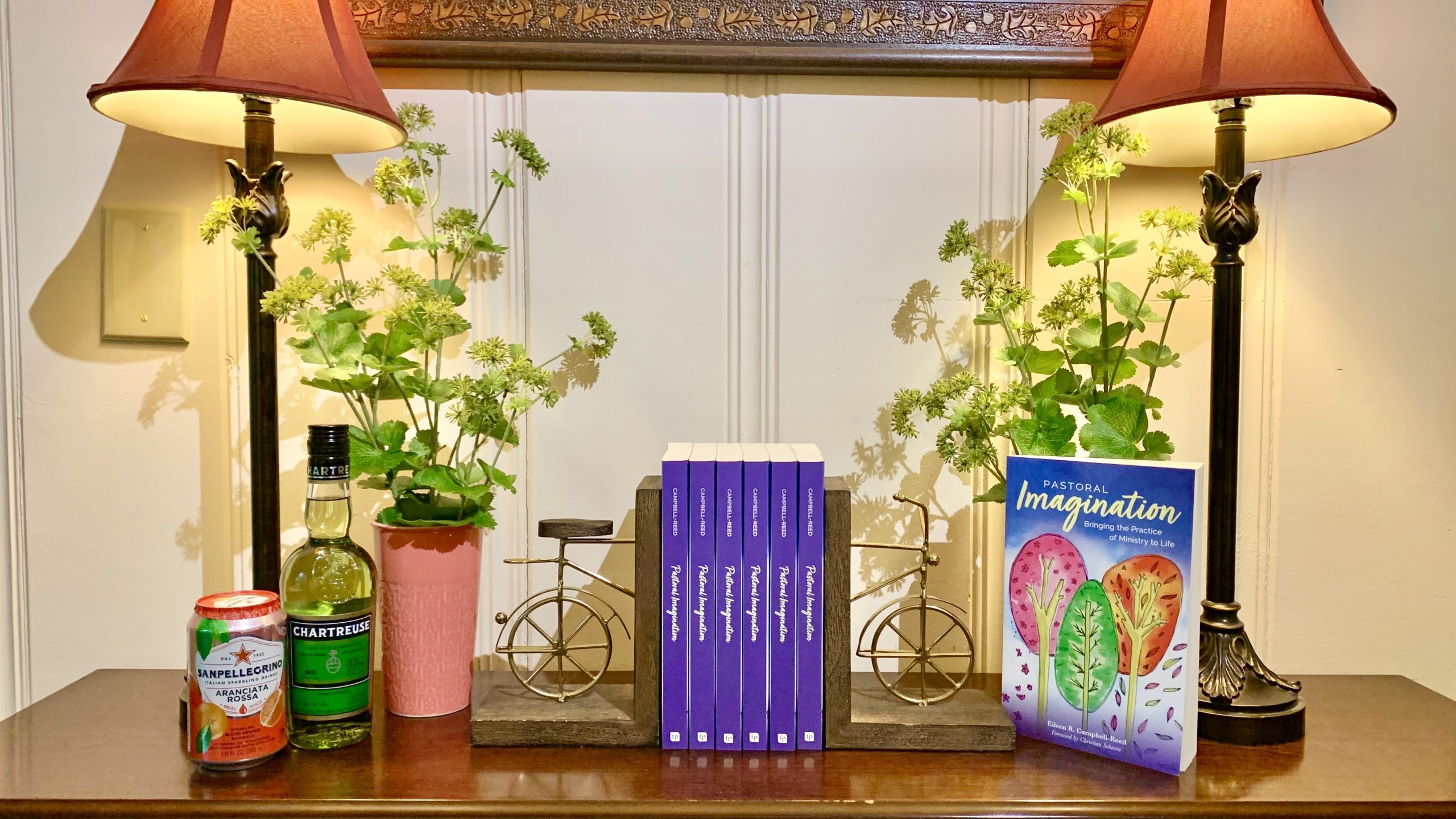So you’ve been hearing the phrase pastoral imagination? And you’re thinking hmmmm, that’s interesting. Sounds kind of fun. Maybe a little mysterious. I’d like to know more…. But what is it exactly?
You have come to the right place. I want to tell you all about it.
Pastoral imagination is a concept. It is an something I study in a research project. And it’s a brand new book.
First a little history. In the late 1990s, Craig Dykstra first named and articulated the concept, but it’s been around without a name for thousands of years. In 2008 the Learning Pastoral Imagination Project received funding from the Lilly Endowment to study this concept. Soon thereafter, Chris Scharen and I began a longitudinal study. Our aim is expand our understanding about how pastoral imagination is cultivated and grows in practice in the lives of ministers. That study continues presently with new funding from the Louisville Institute through 2022 (more below). May 10th, my new book Pastoral Imagination, which draws on our findings from the LPI study, launched into the world.
And read on to learn more about pastoral imagination. You can also watch my recent interview Brian Allain of Writing for Your Life. It was so fun! And it is a good way to learn more about the concept, research project, and my new book.
Pastoral Imagination: the BOOK
 This week I’m so excited to launch a new book Pastoral Imagination: Bringing the Practice of Ministry to Life out into the world!
This week I’m so excited to launch a new book Pastoral Imagination: Bringing the Practice of Ministry to Life out into the world!
There are many ways to get a copy of the book, including independent book stores and our own 3MMM Shop.
If you would like for me to sign a book for you, visit our shop and request an author-signed copy. It will take a few extra days, but I will make sure you receive it. If you already purchased your book and you want your copy signed, we can mail a book plate to you. VIsit the 3MMM Shop for these new options!
 We also created a beautiful companion Pastoral Imagination Journal to accompany the book. It is only available here at our site in the 3MMM Shop. You can order it in a bundle with the Pastoral Imagination book. Or the full color journal can stand on its own. It includes questions from all 50 chapters of Pastoral Imagination and space to reflect on your learning.
We also created a beautiful companion Pastoral Imagination Journal to accompany the book. It is only available here at our site in the 3MMM Shop. You can order it in a bundle with the Pastoral Imagination book. Or the full color journal can stand on its own. It includes questions from all 50 chapters of Pastoral Imagination and space to reflect on your learning.
Inspiring Drinks for the Book Launch
 If you are joining us for the launch party on Tuesday, first, please RSVP here! Then make sure you have something on hand for toasting the new book. In the spirit of pastoral imagination, you can improvise of course!
If you are joining us for the launch party on Tuesday, first, please RSVP here! Then make sure you have something on hand for toasting the new book. In the spirit of pastoral imagination, you can improvise of course!
I’ll be having my favorite non-alcoholic soft drink at the lunch-time launch. In 2019, I had some fun on Facebook with an ongoing “Soda Saga.” It was a chronicle of my adventures in trying to get a Blood Orange San Pellegrino. It is my most favorite soft drink. and I’ll have one over ice for lunch time cheers on Tuesday!
For the happy hour drink, we need something with even more imagination! When Chris Scharen recommended Chartreuse, I knew it was a perfect basis for our happy hour drink. It’s a liqueur, which inspired naming the color chartreuse (not the other way around!). Chartreuse has been around for hundreds of years, and it is made exclusively in a monastery in France. So when you buy this (not terribly cheap) bottle, you are supporting Carthusian monks who keep this recipe a secret and hand it on to each new generation. It is made with 130 herbs and has a unique flavor. I told you, it’s perfect! Recipes to suit your tastes here.
So grab a San Pellegrino or your favorite soft drink, or mix up your favorite cocktail and join us on Tuesday to toast pastoral imagination!**
Pastoral Imagination: The CONCEPT
Christian educator and former vice president of religion at the Lilly Endowment, Craig Dykstra originated the phrase pastoral imagination in the late 1990s. Chris Scharen and I continue to develop his work on practice, which helped him see and name “pastoral imagination” as short-hand for the adaptive, wise leadership capacity that excellent pastors exhibit.
Pastoral imagination refers to an individual’s capacity for seeing a situation of ministry in all its holy and relational depths, and responding with wise and fitting judgment and action. We are extending this understanding by drawing upon the notion of phronesis. This Greek concept refers to practical knowledge and judgment derived from experience in practice over time. The Greek word phronesis was used by Aristotle to describe practical wisdom. It also appears in scripture I am Luke 1:17 and Ephesians 1:8. It is usually translated wisdom. What we understand from the ancient philosopher, Aristotle that phronesis or practical wisdom is both the skill and a virtue. It is doing the best thing under any given circumstances and it can be learned over time by experiencing multiple situations and circumstances.
Through connecting phronesis with the gifts and work of the Holy Spirit, we argue, pastoral imagination (phronesis /practical wisdom) emerges as an integrative, embodied, and relational capacity.
It is a capacity for seeing and being present and acting in situation with skills that make use of multiple kinds of knowledge about self, context, relationships of power, and ritual practices of ministry (pastoral care, preaching, presiding, teaching, leading), and to take risks and act with responsibility.
Pastors, priests, ministers, activists and chaplains need just such a capacity. With pastoral imagination they face the complex work of leading today’s churches, giving spiritual care, and leading with faith in places far beyond traditional religious bodies.
Pastoral Imagination: The RESEARCH PROJECT
In January of this year we learned that the LPI project won new funding to continue following a group of 50 seminary graduates through their ministries, learning, and lives. Read more about the study in this recent news release.
Pastoral Imagination study funded by the Louisville Institute
NEW YORK — The Learning Pastoral Imagination Project (LPI) announces new funding from the Louisville Institute. The $30,000 Research Grant supports an unprecedented national, ecumenical and longitudinal study of pastoral ministry in the United States. Since 2009 the LPI study has been following a cohort of 50 graduates from ten seminaries into their careers as ministers, pastors, priests, chaplains and community/religious leaders.
Project co-directors, Eileen Campbell-Reed and Christian Scharen, will conduct a fourth round of qualitative interviews with ministers who reach the ten-year mark past seminary graduation. The study focuses on how the embodied, relational, spiritual and integrative practice of ministry is learned across time.
**And What about that Imagination Drink?
It turned out deliciously! We could also rename it Improvisation! 🙂




